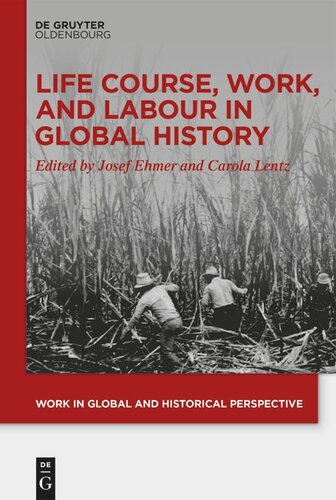

Most ebook files are in PDF format, so you can easily read them using various software such as Foxit Reader or directly on the Google Chrome browser.
Some ebook files are released by publishers in other formats such as .awz, .mobi, .epub, .fb2, etc. You may need to install specific software to read these formats on mobile/PC, such as Calibre.
Please read the tutorial at this link: https://ebookbell.com/faq
We offer FREE conversion to the popular formats you request; however, this may take some time. Therefore, right after payment, please email us, and we will try to provide the service as quickly as possible.
For some exceptional file formats or broken links (if any), please refrain from opening any disputes. Instead, email us first, and we will try to assist within a maximum of 6 hours.
EbookBell Team

4.7
46 reviewsOpen Access
This multidisciplinary volume offers unique perspectives, across the globe and throughout the centuries, on the complexity of the nexus between work and the life course. For industrialized regions, from Germany and Western Europe to China and Japan, it questions the widespread notion of an overall growing working life course instability, since the 1970s. For unindustrialized or industrializing regions, from West Africa to state socialist East Central Europe, as well as for transnational and transcontinental labour migrations, it shows the enormous influence of the extended family and wider kin on individual pathways into and out of work. For early modern Europe, India, and China, and up to twentieth-century state socialism and to current welfare states, it stresses and concretizes the crucial impact of age and gender for both societal labour relations and individual work-related decision making. With all chapters based on original research, the volume reflects a close cooperation between historians, anthropologists, and sociologists. Its multidisciplinary approach finds expression in its methodological plurality, reaching from archival research and sophisticated statistical analyses to biographical interviews and participant observation. This mix allows to grasp the interaction between societal change and individual agency.